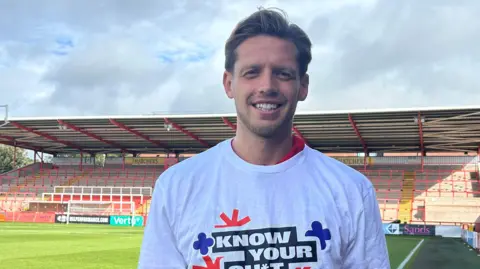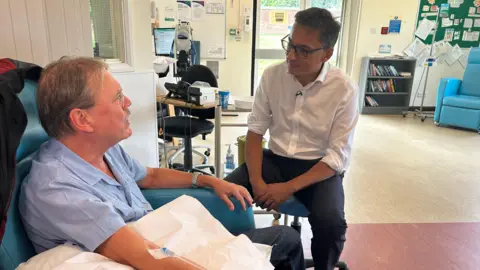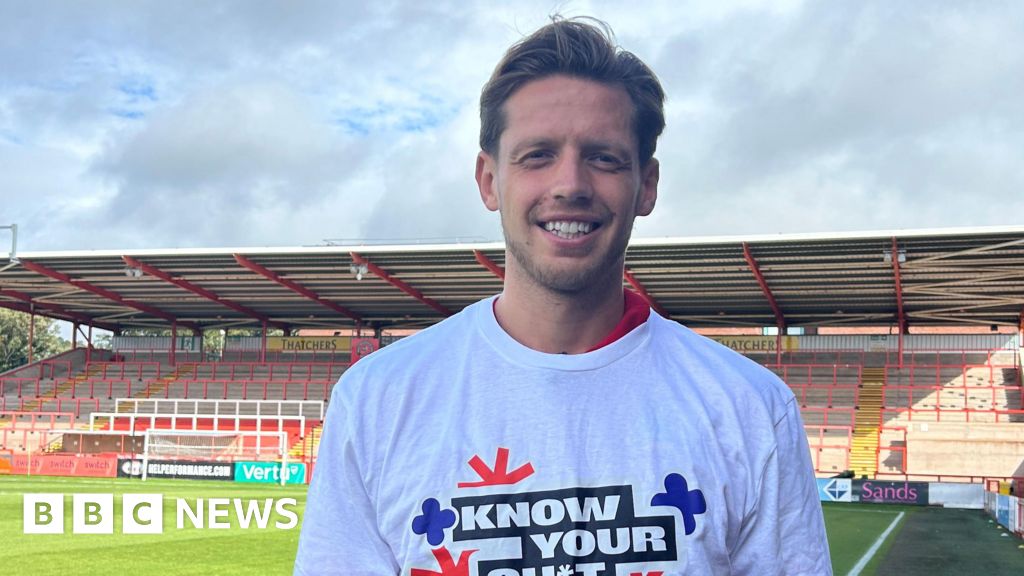 BBC
BBCProfessional footballer Jack Fitzwater was “going to the toilet 20 to 30 times a day with blood in my stool” before being diagnosed with inflammatory bowel disease (IBD).
The Exeter City Player did not talk to anyone about the symptoms until he went to a doctor a month or two later.
“I felt really ill. I was tired and irritable all the time,” he said. “I hid it from the dressing room. I was doing everything I could off the pitch to recover so I could perform on it.”
The 28-year-old defender is now supporting IBD research by the Royal Devon University Healthcare NHS Foundation Trust and the University of Exeter, with free tests for 16-49 year-olds.
“I’ve got to somewhat normality now,” he said, following treatment for ulcerative colitis.
“Where I am today, from where I was – it’s night and day. The energy I bring into a room is levels above where I was two to three years ago.”
Backed by the Know Your Sh*t campaign, the RAPID-IBD study is giving people aged between 16 and 49 years old in the EX-postcode area the opportunity to order a free test, which is posted directly to them.
This is tested in a hospital laboratory and if positive, patients are referred to a specialist and seen within weeks.

Dr Rebecca Smith, who runs the project, said: “People take a long time to get diagnosed – on average about six months.
“But a quarter of people will wait more than three months and, in that time, it is having a big impact on them in terms of quality of life.”
Researchers hope to recruit 5,000 people for the study.
What are the symptoms of IBS?
Inflammatory bowel disease is an umbrella term for Crohn’s disease and ulcerative colitis, which affect 1 in 100 people in the UK.
They are lifelong conditions causing symptoms such as persistent abdominal pain, diarrhoea and blood in your poo.
The peak age of onset is the mid-20s.

